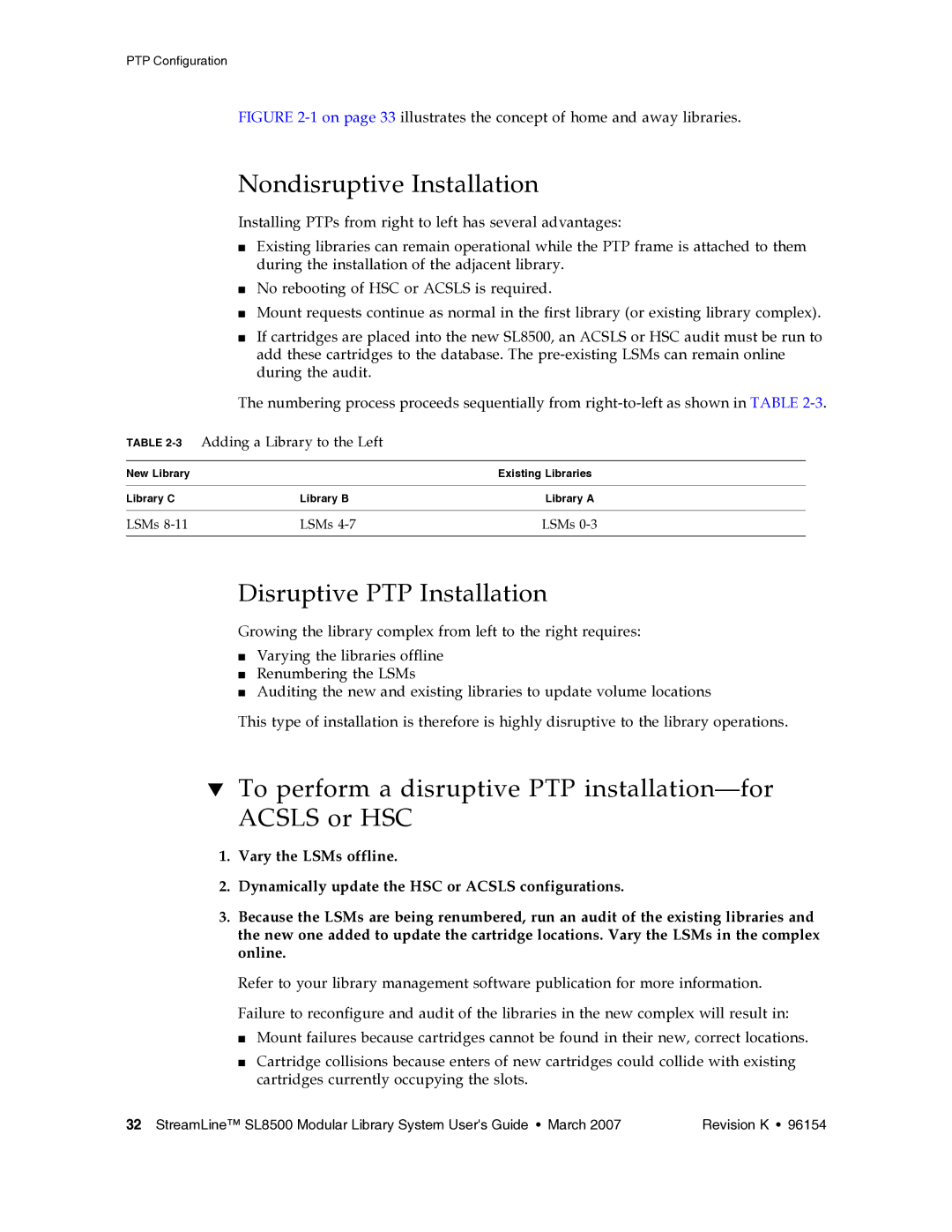PTP Configuration
FIGURE 2-1 on page 33 illustrates the concept of home and away libraries.
Nondisruptive Installation
Installing PTPs from right to left has several advantages:
■Existing libraries can remain operational while the PTP frame is attached to them during the installation of the adjacent library.
■No rebooting of HSC or ACSLS is required.
■Mount requests continue as normal in the first library (or existing library complex).
■If cartridges are placed into the new SL8500, an ACSLS or HSC audit must be run to add these cartridges to the database. The
The numbering process proceeds sequentially from
TABLE 2-3 Adding a Library to the Left
New Library |
| Existing Libraries |
|
|
|
Library C | Library B | Library A |
|
|
|
LSMs | LSMs | LSMs |
|
|
|
Disruptive PTP Installation
Growing the library complex from left to the right requires:
■ Varying the libraries offline ■ Renumbering the LSMs
■ Auditing the new and existing libraries to update volume locations
This type of installation is therefore is highly disruptive to the library operations.
▼To perform a disruptive PTP installation—for ACSLS or HSC
1.Vary the LSMs offline.
2.Dynamically update the HSC or ACSLS configurations.
3.Because the LSMs are being renumbered, run an audit of the existing libraries and the new one added to update the cartridge locations. Vary the LSMs in the complex online.
Refer to your library management software publication for more information. Failure to reconfigure and audit of the libraries in the new complex will result in:
■Mount failures because cartridges cannot be found in their new, correct locations.
■Cartridge collisions because enters of new cartridges could collide with existing cartridges currently occupying the slots.
32 StreamLine™ SL8500 Modular Library System User's Guide • March 2007 | Revision K • 96154 |
